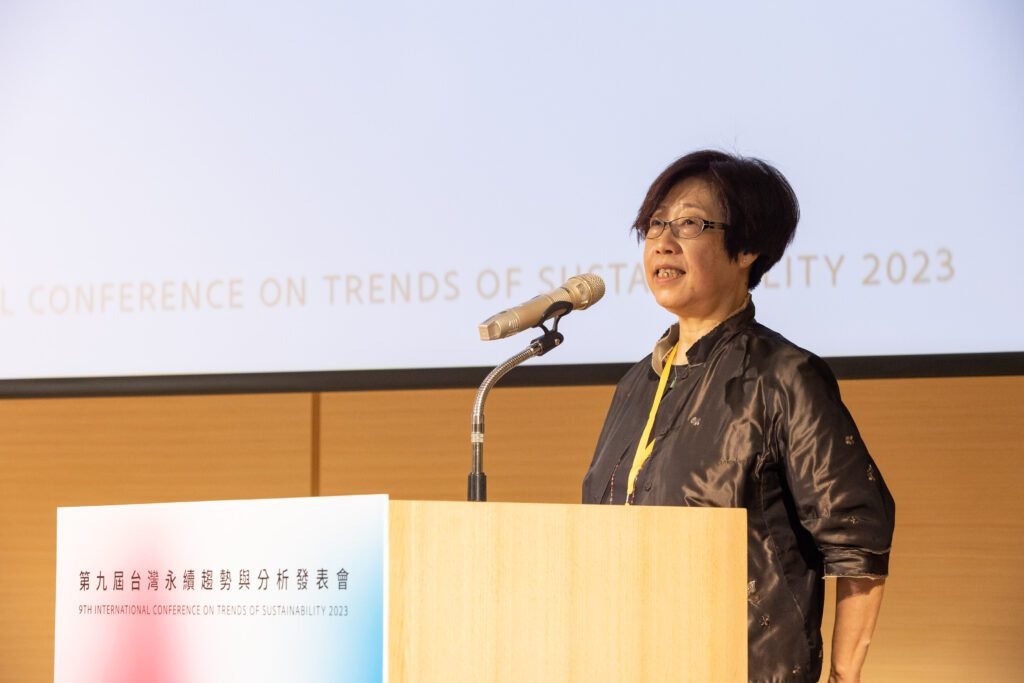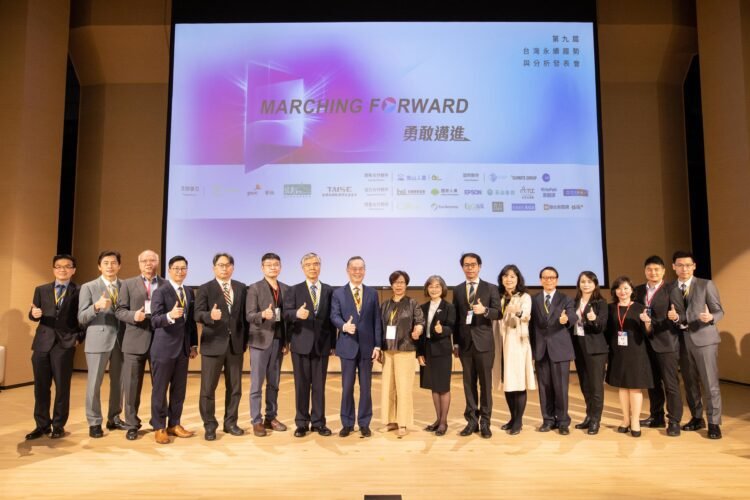Of particular interest is the fact that two of the top 100 companies in Taiwan in terms of revenue have not yet published sustainability reports.
44.6% of Taiwan’s newly regulated companies have not been disclosed, and two of the top 100 companies in terms of revenue have not published sustainability reports.
CSRone, Taiwan’s leading brand in domestic sustainability for 9 years in a row together with the Sinyi School of NCCU College of Commerce released their latest survey on March 24, which demonstrated that the number of sustainability reports published by Taiwanese companies exceeded 800 in 2022. Of particular interest is the fact that two of the top 100 companies in Taiwan in terms of revenue have not yet published sustainability reports.
This analysis report is the work of 50 researchers with 946 indicators analyzed over six months. It will be officially released at the CSRone annual event, “The 9th International Conference on Trends of Sustainability.” The conference is co-hosted by CSRone, PricewaterhouseCoopers Sustainability Services Company Ltd., the Sinyi School of NCCU College of Commerce, and the Taiwan Institute for Sustainable Energy (TAISE.)
Strategic partners include Nan Shan Life Insurance Co., Ltd. Co-partners include BSI Taiwan, Cathay Life Insurance, Epson Taiwan, E.SUN Financial Holding Company, Taiwan Cement Corporation Ltd., WritePath, Yuanta Financial Holding Co. Ltd., etc. We are also supported by the Chief Executives for Corporate Purpose (CECP), The Climate Group, and Global Reporting Initiative (GRI).
CSRone’s founder and President, Gennie Yen stated at the opening ceremony that in recent years, disasters caused by climate changes have increasingly manifested themselves in all aspects of life: geopolitical disruptions in the supply chain, imbalances in supply and demand in the energy market, and rising inflation rates that are impacting all levels of the economy. However, “Companies build resilience through changes, and must continue to move forward amidst changes.” Although crises often come uninvited, they are also the best opportunities to test the resilience of corporate organizations, turn crises into safety, and survive the challenge.

44.6% of Taiwan’s newly regulated companies have not been disclosed, and two of the top 100 companies in terms of revenue have not published sustainability reports.
To build a solid ESG ecosystem in Taiwan, the FSC officially initiated “Corporate Governance 3.0 – Sustainable Development Blueprint” in 2020. The scope of sustainability reporting has been expanded, and industries and organizations are feeling the overwhelming “wave of information disclosure”. The research team collected 810 sustainability reports published by Taiwanese companies, academic institutions, and non-profit organizations, and analyzed 777 reports in depth published by businesses in particular.
The survey found that a total of 90.3% were published by TWSE and TPEx-listed companies (64.6% TWSE-listed and 25.7% TPEx-listed). The research team conducted an analysis of Taiwan’s top 100 companies in terms of revenue during the collection period and found that two companies on the list have yet to publish sustainability reports. On the other hand, according to statistics, as of the end of February 2022, there were 278 listed companies with capitals between NT$2 billion and NT$5 billion subject to the new regulation, but 126 companies have yet to publish a sustainability report, accounting for 44.6% of companies in that capitalization range.
Of particular interest is that in October 2021, GRI, the Global Sustainability Reporting Institute, released the GRI Universal Standards 2021, which came into effect on January 1 of this year. In this year’s analysis, the research team found that only 1.6% of companies (13) took the lead in adapting to the new international framework and publishing sustainability reports, with 87.6% of them completing third-party verification.
The average EPS and ROE of companies publishing sustainability reports have outperformed the market for eight consecutive years.
The CSRone has surveyed the financial data of companies for eight consecutive years, and it analyzed relationship between the publication of corporates Sustainability Reports and financial performance by investigating financial indicators, such as earnings per share (EPS) and return on equity (ROE), which are common key investment decision-making bases in the market.
From the data of the past three years, it can be found that Taiwanese companies that publish sustainability reports have better EPS performance, and the gap with all companies is gradually widening; the ROE performance of this group has been consistently higher than that of the market for many years. The TWSE and TPEx-listed companies without sustainability reports have worse ROE and EPS performances than the market for eight consecutive years.
65.8% routinely set up corporate sustainability committees, yet 90% do not connect remuneration and ESG performance.
In recent years, internationally renowned sustainability indicators have included the link between corporate executive remuneration and ESG performance in their ratings in order to encourage companies to internalize their sustainability goals and accelerate related actions. Senior executives are encouraged to lead their teams by integrating ESG values while creating financial performances. Sustainability risk identification and management can effectively build a more resilient board governance structure. With the 2022 Corporate Governance Evaluation Announcement including “director and manager performance evaluation and remuneration link” as one of the observation indicators, this governance trend is gradually trending in Taiwan.
The study found that 65.8% (511) out of 777 Taiwan’s companies that published sustainability reports in 2022 have already set up sustainability committees on a regular basis to promote sustainability initiatives through a “top down” approach, and 9.8% (76) linked the connection between sustainability performance to remuneration. CSRone believes that even though the management are becoming more conscious of sustainability transformation issues and trends, they still need to carefully evaluate ways to change within their organizations, such as the necessity for dedicated personnel such as chief sustainability officers (CSOs) to prevent companies from losing their way and creating high operating costs while blindly chasing the trend.
29% of Taiwan companies responded to the net zero target, 77.9% still did not conduct carbon footprint verification.
The climate crisis has been heating up in recent years, and the impact of climate events such as floods, droughts, forest fires and snowstorms is becoming more and more severe. What is even more alarming is that the average global temperature is rising at an unprecedented rate, and the risk of irreversible tipping points for humanity is growing. In the face of global expectations for climate action, many countries and corporations have set net-zero or carbon-neutral commitments. In March 2022, the Taiwanese government vowed to reach the 2050 net zero goal and proposed the “Taiwan’s Pathway to Net-Zero Emissions in 2050” to implement the net zero goal through various strategies such as improving energy efficiency and promoting the use of renewable energy.
“Carbon” related indicators for Taiwanese companies,
In 2022, the research team first published “carbon” related indicators for Taiwanese companies, and this year the analysts further consolidated their observations based on the 777 sustainability reports. Through the analysis it was found that the percentage of companies mentioning “carbon neutral (23.6%)”, “carbon rights (12.6%)” and “internal carbon pricing (8.9%)” all demonstrated an increase from the previous year, with “carbon neutral” in particular having the highest percentage. However, looking at the information disclosed, the majority of companies that have disclosed carbon-related implementation results accounted for only 1.2% to 2.4%, and as high as 77.9% have not yet conducted carbon footprint verification.
The research team also pointed out that as many as 229 reports (29.5%) within the scope of analysis had responded to the government’s net-zero roadmap or vowed their own net-zero target and stated their measures in the report. In the 229 reports, only 33.6% used the Science-Based Targets (SBTi) to develop carbon reduction pathways and targets, indicating that most companies still lack specific plans for net-zero emissions and carbon reduction actions.
97.3% of companies set up supplier management policies, only 63.4% assess supply chain risks
With the rise of various issues such as international carbon reduction trends, labor relations, human rights protection, companies are gradually expanding and raising the requirements of sustainability policies for suppliers to ensure that they are focused on carbon reduction, human rights management, and other goals during the production process. According to statistics, 97.3% (756) of the 777 Taiwanese companies have formulated and disclosed their supplier management policies, but only 63.4% (493) have conducted supplier risk management and assessment. Therefore, the importance of sustainable suppliers’ management is increasing year by year, and companies must pay more attention to managing potential risks of suppliers.
(India CSR)







